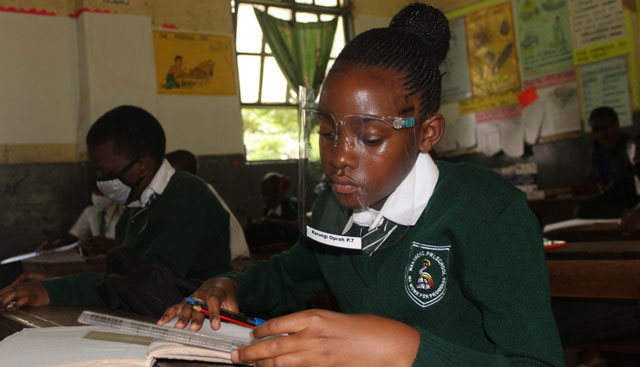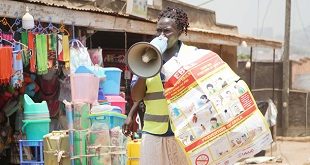
Kampala, Uganda | THE INDEPENDENT | Health experts are worried that the reopening of educational institutions for non-candidate might trigger a surge in COVID-19 cases if schools do not fully adhere to the required Standard Operating Procedures -SOPs.
During the first phase of re-opening, schools were required to put in place certain measures including provision of hand washing facilities, ensuring wearing of facial masks, maintaining a two-meter social distancing at all times, closing boundaries and operating as either a day or boarding school but not both.
However, scientists do not think schools will be able to follow all the set guidelines when they resume
With new COVID-19 infections being reported when only finalists were allowed to go back to school, scientists say that they expect numbers to increase. They do not think schools will be able to follow all the set guidelines when they resume.
One of the biggest weaknesses that the health ministry cited following investigations into COVID-19 transmissions within schools was the failure to restrict access to schools most especially those that were running as boarding.
Dr Charles Olaro, the director of curative services at the Ministry of Health says that schools need to restrict access into schools as many infections last year were traced through this group.
“Investigations that we carried out last year showed that schools were not following all the SOPs. In many schools we discovered that infections were entering through visitors that were allowed into schools. With more learners allowed to go back to school, this is an area that schools will have to be strict on,” he said.
In addition to schools letting in visitors, Olaro says that the lack of mass testing for all learners who were returning was an open gateway for infections to take place. With the numbers of learners expected to more than double as more classes are given the greenlight to resume learning, this poses more danger, according to scientists.
However, government maintains that they cannot test all learners due to a shortage of testing equipment and the funds associated with it.
Dr Monica Musenero, an epidemiologist and also a senior presidential consultant on epidemics told URN that it is important for schools, parents and learners to strictly follow all the set SOPs.
“With schools re-opening, we expect more cases,” she said. “Children are going to carry the disease from their homes and into schools and vice-versa. If there’s complacency, we shall see the numbers skyrocket. To prevent this, learners and teachers need to be taught how to keep safe and adhere to all the SOPs so that people everywhere are safe.”
As of now, it is not clear whether these measures will be maintained, especially the “two metre distance at all times”. However, the Cabinet decision indicates that SOPS should be continuously reviewed and updated based on the trend of the pandemic in the country.
Schools will also be expected to set up a routine school health information system to report on absenteeism, possible cases of infection and disease surveillance efforts.
Filbert Baguma, the secretary general of the Uganda National Teachers Union (UNATU) brushes off the worries of the medical experts saying that schools are much safer environments for learners compared to home.
“In communities where these children live, there’s no control,” Baguma says. “There’s little guidance on how to handle certain things which is not the case in schools. Schools have rules that are binding to teachers, non-teaching staff and students. Also in the environments where they have been there has been high teenage pregnancies.”
Musenero says one of the important SOPs that schools need to enforce is wearing of facial masks as this can curb the spread of the disease from one person to another especially in crowded settings.
A recent study carried out by Makerere School of Public Health in Hoima revealed that while majority of children knew about covid-19 and how it spreads, none of the children interviewed by the researchers knew how to properly wear a face mask.
Dr Christine Nalwadda, the lead investigator of the study highlighted the need to educate children on how to properly wear and look after face masks
“None of the children followed all the recommended steps when putting on a mask and less than 1% followed the recommended steps for removing a face mask,” she said while disseminating her findings. This is a big challenge that could endanger them especially at a time we have rapid spread of the virus.”
********
URN
 The Independent Uganda: You get the Truth we Pay the Price
The Independent Uganda: You get the Truth we Pay the Price



